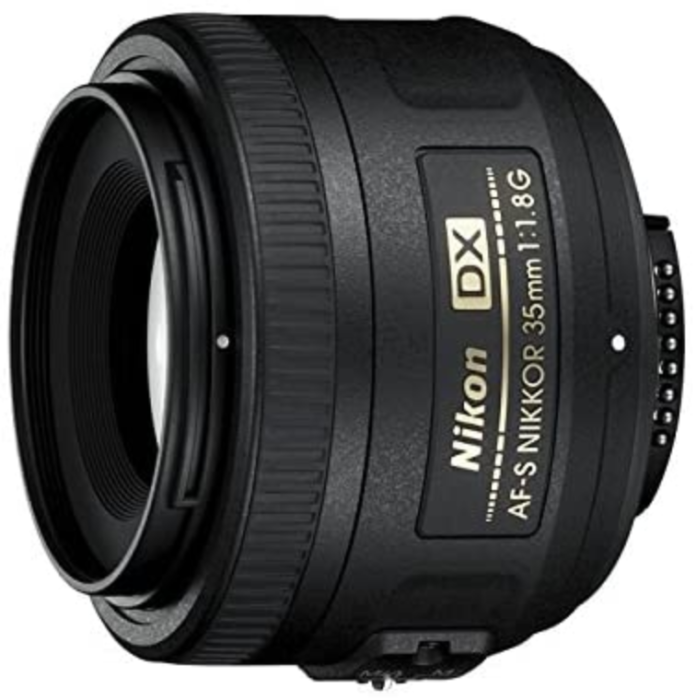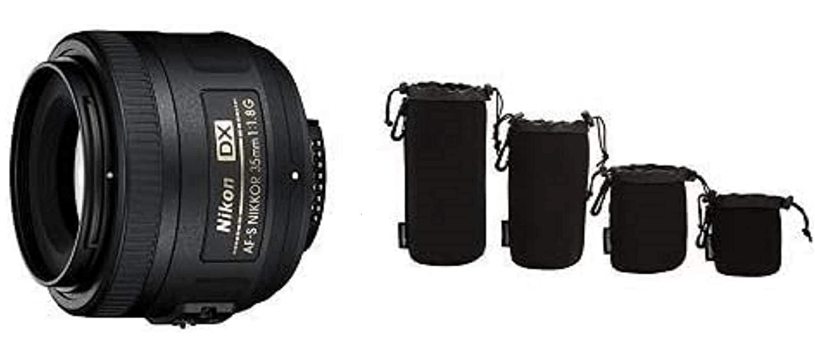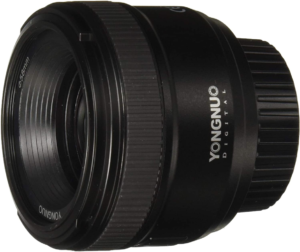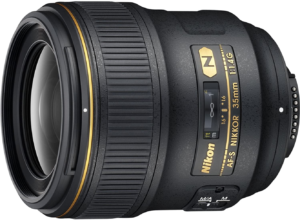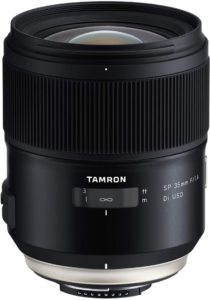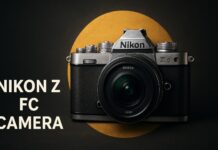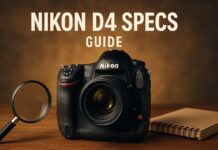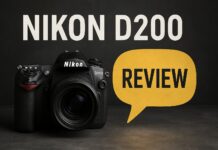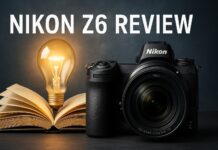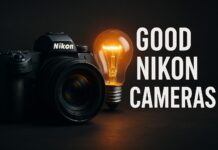Contents
- Why 35mm Still Lives in My Camera Bag
- Quick Picks
- How I Evaluate 35mm Lenses
- Best 35mm Lenses for Nikon Z Mount (Full Frame)
- Best 35mm Lenses for Nikon F Mount (DSLR)
- AF S NIKKOR 35mm f/1.8G (FX) – Best Value for Full Frame DSLRs
- AF S NIKKOR 35mm f/1.4G – Classic Pro Look
- Sigma 35mm f/1.4 DG HSM Art (F mount) – Sharpness with Personality
- Tamron SP 35mm f/1.8 Di VC USD (F mount) – Stabilized Sleeper
- F Mount Head to Head: 35 1.8G vs 35 1.4G vs Sigma 35 1.4 Art vs Tamron 35 1.8 VC
- Optical Behavior You Will Notice
- Video Notes
- Which One Fits Your Camera
- DX Shooters – Getting the 35mm Look
- How to Choose the Right 35 for Your Shooting
- Field Settings That Actually Work
- FAQ
- Final Verdict
Why 35mm Still Lives in My Camera Bag
If I am walking out the door with one lens, it is almost always a 35mm. It is wide enough for street, travel, and environmental portraits, but tight enough to isolate without shouting. It lets me get close, stay honest, and tell the story in context. I have used 35s for weddings, rainy night city walks, family gatherings, dim cafes, and quick food photos when the plate arrives already cooling. A good 35mm disappears and lets you focus on the moment.
Quick Picks
- Best overall for Z mount: NIKKOR Z 35mm f/1.8 S
- Best budget for Z mount: Viltrox 35mm f/1.8 Z
- Best character – manual focus: Laowa Argus 35mm f/0.95 (Z mount)
- Best value for DSLRs (F mount): AF-S NIKKOR 35mm f/1.8G (FX)
- Sharpness with personality (F mount): Sigma 35mm f/1.4 Art
- Stabilized 35 for DSLRs (F mount): Tamron SP 35mm f/1.8 VC
- Closest match to 35mm on DX: Z DX 24mm f/1.7
- Budget DX fast option: Viltrox 23mm f/1.4 (Z DX)
How I Evaluate 35mm Lenses
- Autofocus: Consistent lock in poor light matters more than lab speed. I care about hit rate on faces in real scenes.
- Rendering: Contrast, color, microcontrast, and how bokeh behaves near the frame edges.
- Low light behavior: Corner performance at wide apertures and how flare behaves around streetlights.
- Handling: Balance on the body, focus ring feel, and whether I forget I am carrying it after two hours.
- Value: What you actually get for the price – not just test chart bragging rights.
Best 35mm Lenses for Nikon Z Mount (Full Frame)
NIKKOR Z 35mm f/1.8 S – Best Overall
The Z 35mm f/1.8 S is the one I recommend when someone wants a dependable, everyday 35 that just works. It is not flashy on paper, but out in the world it nails white balance, keeps flare under control, and renders with a clean, modern look. Edge performance is strong by f/2.8, and eye detect AF on Z bodies is reliable in tricky restaurant light.
Real world notes: Street at night with wet pavement looks crisp without smeary highlights. Starbursts at f/8 are clean. It balances well on Z6 and Z7 bodies and does not make the camera feel front heavy.
- Pros: Consistent AF, excellent contrast, weather sealing, great everyday weight
- Cons: Not as fast as f/1.4 or f/1.2 for extreme blur
Want the current price and availability? Use the button in the table above.
Viltrox 35mm f/1.8 Z – Best Budget
If you want a fast 35 on Z without bruising the wallet, the Viltrox 35mm f/1.8 Z is better than it has any right to be for the price. AF is good enough for people and casual street work. Colors lean neutral, and center sharpness is already useful at f/1.8. Corners improve by f/2.8.
Real world notes: For travel, this paired with a Z5 or Z6 keeps the kit light and images still hold up when you push shadows.
- Pros: Price, usable wide open, decent AF, solid build
- Cons: More longitudinal CA than the Nikon, bokeh can get busy behind branches
Ready to compare prices? Tap the button in the table above.
Laowa Argus 35mm f/0.95 (Z) – Best for Mood and Manual Focus
This is not a spec sheet trophy – it is a mood machine. At f/0.95 you get a glow that suits night streets, neon, and quiet portraits by window light. Stop down to f/1.4 and it sharpens up. The focus throw is long and smooth, and the lens asks you to slow down, which is not a bad thing.
- Pros: Unique look, extreme low light ability, great manual focus experience
- Cons: Heavy, manual focus only, optical compromises wide open
Curious about stock and price? The button in the table above takes you there.
Using F Mount 35s on Z via FTZ II
The FTZ II adapter works cleanly with Nikon AF S primes and many third party F mount lenses. If you already own a good F mount 35, keep using it. AF S and many Sigma Art lenses focus well. Older AF D lenses will be manual focus only on Z bodies.
Head to Head on Z: Z 35 f/1.8 S vs Viltrox 35 f/1.8 vs Laowa 35 f/0.95
| Lens | AF | Wide Open Look | Flare Control | Weight | Best For |
|---|---|---|---|---|---|
| NIKKOR Z 35mm f/1.8 S | Reliable, clean tracking | Neutral, modern, sharp center | Very good | Light | Everyday, travel, weddings |
| Viltrox 35mm f/1.8 Z | Good for portraits and street | Slightly busier bokeh | Good | Light | Budget friendly kit building |
| Laowa 35mm f/0.95 (MF) | Manual focus only | Dreamy glow at f/0.95, sharp by f/1.4 | Fair | Heavy | Moody night work, creative look |
Best 35mm Lenses for Nikon F Mount (DSLR)
AF S NIKKOR 35mm f/1.8G (FX) – Best Value for Full Frame DSLRs
For D750, D780, or D850 shooters, the 35mm f/1.8G is the easiest recommendation. It is light, fast enough, sharp by f/2.2, and inexpensive on the used market. If you shoot families, street, or documentary, this lens delivers without fuss.
- Pros: Value, weight, useful wide open, fast AF on DSLRs
- Cons: Vignettes wide open, bokeh can get nervous in busy backgrounds
Check availability and kits using the button in the table above.
AF S NIKKOR 35mm f/1.4G – Classic Pro Look
For weddings and portraits on DSLRs, the 35mm f/1.4G gives smoother transitions and a little more subject separation. It is not the sharpness king wide open, but the rendering is flattering and the focus behavior on bodies like D850 and D5 is dependable.
- Pros: Smooth rendering, strong low light AF on pro bodies, durable build
- Cons: Price, heavier than the f/1.8G, some coma wide open
Sigma 35mm f/1.4 DG HSM Art (F mount) – Sharpness with Personality
The Sigma Art 35 reset expectations for fast primes at this price. On DSLRs it focuses well when properly tuned, and the look is crisp with punchy microcontrast. For environmental portraits and detail shots, it is a workhorse.
- Pros: Very sharp, great contrast, good value on the used market
- Cons: Calibration can be needed on some bodies, heavier than Nikon 1.8G
See price and stock via the button in the table above.
Tamron SP 35mm f/1.8 Di VC USD (F mount) – Stabilized Sleeper
If you shoot handheld in available light and value stabilization, the Tamron SP 35mm f/1.8 VC earns its keep. VC buys you slower shutter speeds for static scenes, and the lens has a gentle rendering that suits people and lifestyle work.
- Pros: Image stabilization, close focus, pleasing color
- Cons: Not as sharp as Sigma wide open, focus motor is audible in video
F Mount Head to Head: 35 1.8G vs 35 1.4G vs Sigma 35 1.4 Art vs Tamron 35 1.8 VC
| Lens | AF Consistency | Rendering | Low Light | Stabilization | Best For |
|---|---|---|---|---|---|
| Nikon 35mm f/1.8G | Very good | Clean, slightly clinical | Good | No | General purpose, value |
| Nikon 35mm f/1.4G | Pro body friendly | Smooth transitions | Very good | No | Weddings, portraits |
| Sigma 35mm f/1.4 Art | Good when calibrated | Crisp, high contrast | Very good | No | Detail, environmental portraits |
| Tamron 35mm f/1.8 VC | Good | Gentle, pleasing | Good | Yes | Handheld low light, travel |
Optical Behavior You Will Notice
- Flare: The Z 35 f/1.8 S handles streetlights well. Viltrox is decent. Laowa shows more veiling flare at wide apertures.
- Coma: If you shoot cityscapes with point lights, stop down to f/2.8 to tame wings on most lenses.
- Cat’s eye bokeh: Expect oval highlights near the frame edges at wide apertures, more pronounced on faster designs.
- Focus shift: Minimal on the Z 35 f/1.8 S. Check focus carefully when stopping down on some F mount lenses.
- Field curvature: For flat subjects, stop down to f/4 for best edge to edge consistency.
Video Notes
- Focus breathing: Z 35 f/1.8 S keeps breathing modest. Sigma Art and Nikon 1.4G breathe more.
- AF noise: The Z 35 f/1.8 S is quiet. Tamron VC motor is audible on-camera in quiet rooms.
- Stabilization: Tamron VC helps for handheld talking heads and product shots on DSLRs. On Z, rely on IBIS when available.
Which One Fits Your Camera
- Z5, Z6, Z6 II, Z7, Z7 II: Z 35 f/1.8 S is the daily driver. Viltrox 35 1.8 for budget. Laowa 0.95 for style.
- Z8, Z9: Z 35 f/1.8 S tracks faces cleanly at events. Consider adapting Sigma 35 Art only if you already own it.
- D750, D780: Nikon 35 1.8G is the best value. Sigma 35 Art if you want more pop and do not mind calibration.
- D850: 35 1.4G or Sigma 35 Art show their strengths on the high resolution sensor.
DX Shooters – Getting the 35mm Look
On Nikon DX, a 35mm lens behaves like a roughly 52mm equivalent. If you want a 35mm field of view on DX, look around 23 to 24mm. Nikon Z DX 24mm f/1.7 gives you a small, light 36mm equivalent that feels close to a true 35 for daily use.
- Best simple choice on Z DX: NIKKOR Z DX 24mm f/1.7 – tiny, sharp, perfect for small Z bodies
- Budget fast option: Viltrox 23mm f/1.4 (Z DX) – 35mm equivalent with shallow depth of field
How to Choose the Right 35 for Your Shooting
- People and weddings: You will notice AF reliability and rendering more than MTF charts. Pick Nikon 35mm f/1.4G on F or Z 35mm f/1.8 S on Z.
- Travel and street: Weight and size win. Z 35mm f/1.8 S or Viltrox 35mm f/1.8 Z keep you nimble.
- Low light – moody work: If you enjoy manual focus and cinematic glow, Laowa 35mm f/0.95 delivers a look you cannot fake.
- Video: Prefer lenses with minimal focus breathing and quiet motors. The Z 35mm f/1.8 S behaves nicely.
- On a budget with a DSLR: The AF S 35mm f/1.8G is the no drama choice that quietly gets the job done.
Field Settings That Actually Work
- Night street, handheld: f/1.8, 1/160s, ISO 3200 to 6400. Clean shadows beat motion blur.
- Cafe portraits by window: f/2 to f/2.8, 1/200s, Auto ISO capped at 6400. Focus on the lead eye and step closer rather than cropping.
- Environmental portraits outdoors: f/2.8 to f/4, 1/500s, ISO 100 to 400. Keep a touch more depth to hold context cleanly.
- Cityscapes with starbursts: f/8 to f/11, tripod if possible, ISO 100. Shield the front element with your hand to tame flare.
FAQ
Can I use my F mount 35mm on a Nikon Z body? Yes – use the FTZ II adapter. AF S and many third party HSM or USD lenses work. Older AF D lenses will be manual focus only.
Is a 35mm good for portraits? For environmental portraits and half body shots, yes. For tight headshots, a 50 to 85mm is more flattering.
Do I need f/1.4? Not always. f/1.8 lenses are lighter, cheaper, and excellent. Pick f/1.4 or faster if you love low light or crave a specific look.
Final Verdict
If you shoot Nikon Z and want one 35 to trust daily, buy the NIKKOR Z 35mm f/1.8 S. If you are building a kit on a budget, the Viltrox 35mm f/1.8 Z punches above its weight. DSLR shooters should grab the AF S 35mm f/1.8G or the Sigma 35mm f/1.4 Art if they want more blur. The right 35 does not get in your way – it lets you step a foot closer and make the frame honest.
Last update on 2026-02-17 / Affiliate links / Images from Amazon Product Advertising API


